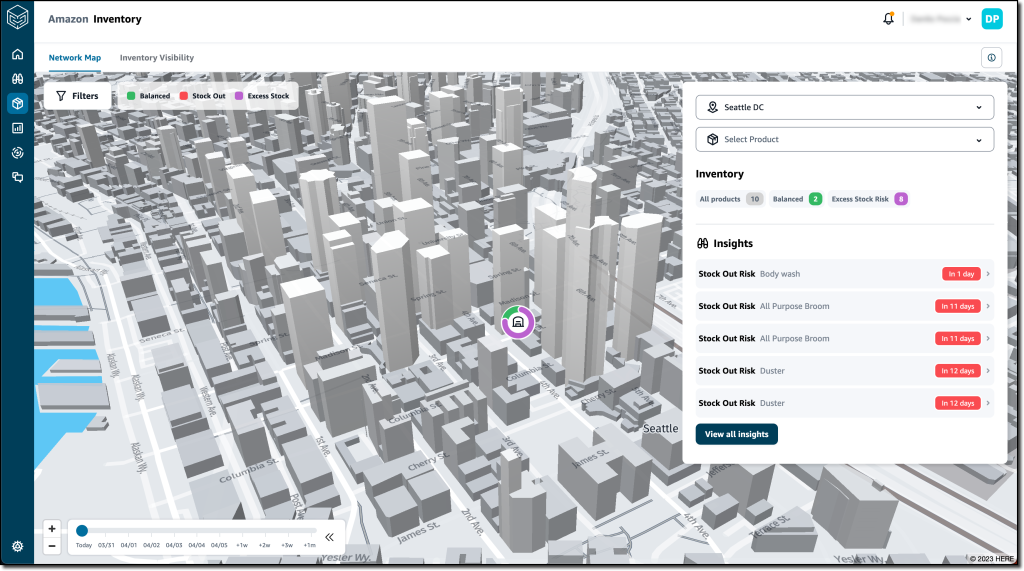
MMS • Steef-Jan Wiggers
Article originally posted on InfoQ. Visit InfoQ
AWS’s Supply Chain cloud application has recently been made generally available, offering unified data, actionable insights powered by machine learning, and contextual collaboration features to reduce costs and mitigate risk.
The company introduced AWS Supply Chain during the re:Invent conference last year to abstract away complexities involving supply chain data caused by the pandemic. With the GA release, the company added several enhancements, such as access to AWS Supply Chain Insights alerts from the supply chain network map view, support for nine languages across 24 locales, the enhanced ability to connect to SAP S/4HANA instances using AWS PrivateLink or OAuth credentials, and automatic normalization of various date-time formats into the ISO-8601 standard to reduce errors caused by inconsistent date-time data.
The application connects to the customers’ existing enterprise resource planning (ERP) and supply chain management systems and provides several capabilities beneficial for users, such as:
- A data lake set up using ML models that have been pre-trained for supply chains to understand, extract, and transform data from different sources into a unified data model.
- Data is displayed in a real-time visual map that uses interactive graphical end-user interfaces.
- Actionable insights – automatically generated for potential supply chain risks (for example, overstock or stockouts) using the comprehensive data in the data lake and shown in the real-time visual map.

Furthermore, AWS Supply Chain can, for instance, identify a nearby logistics hub with the desired product when a store is close to depleting its stock. It can also provide multiple recommendations to resolve supply chain problems, and the suggestions are ranked to assist supply chain teams in selecting the best option.
Danilo Poccia, Chief Evangelist (EMEA) at AWS, explains in an AWS blog post:
Recommendation options are scored by the percentage of risk resolved, the distance between facilities, and the sustainability impact. Supply chain managers can also drill down to review the impact each option will have on other distribution centers across the network.
Similar solutions in the market that have comparable capabilities around supply chain and stock management are from companies such as Slimstock, Microsoft (D365 Supply Chain), Oracle (Supply Chain– and Inventory Management), and Manhattan Associates (Supply Chain Solutions and Inventory Optimization).
Currently, AWS Supply Chain is available in the following AWS Regions: US East (N. Virginia), US West (Oregon), and Europe (Frankfurt).
Lastly, AWS will charge $0.28 per hour for the first 10GB of storage and services. In addition, $0.25 per GB per month will be charged when storage data exceeds 10GB. The pricing details are available on the pricing page, and more information on the application is available on the documentation pages.